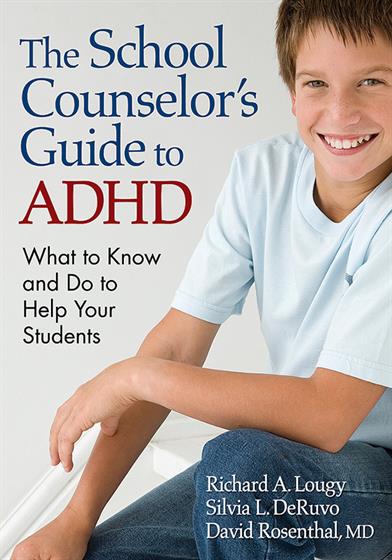Preface
Acknowledgments
About the Authors
1. What Is Attention-Deficit/Hyperactivity Disorder (ADHD)?
Is ADHD a Mythical Disorder?
Theory Versus Scientific Fact
ADHD Is a Complex Set of Behaviors
Diagnostic Criteria
Manifestations of ADHD
Prevalence of ADHD
What Causes ADHD?
Primary Symptoms and Common Impairments
Predominantly Inattentive Type of ADHD
Summary
2. The Role of Executive Function
Why Spend So Much Time on Executive Function?
What Is Executive Function?
Role of Executive Function as Related to ADHD
Snapshot Overview of Executive Function Processes
Deficit in Behavioral Inhibition: Russell Barkley
Components of Executive Function
Executive Functions Work Together in Various Combinations: Thomas Brown
Summary
3. Treating Children With ADHD Fairly
Fair and Equal Are Not the Same
The School Counselor's Role
The School Counselor's Role as a Consultant
The School Counselor's Role in Helping Teachers Better Understand
Explaining Risk Factors on School Performance
Encountering Teachers Who Seem Very Resistant to Accommodations
The School Counselor's Role in Helping Parents Better Understand
The School Counselor's Role in Helping Parents Talk to Their Child About ADHD
The Parent-Child Relationship With Regard to the School
The Empathetic Educator
The Hidden Disability Does Not Keep the Child From Succeeding
Road Map for Assuring Fairness
Summary
4. Classroom Strategies: A Recipe for Student Success by Silvia L. DeRuvo
The School Counselor's Role in Inciting Change
Recognizing the Academic Challenges
Related Academic Performance Areas Challenging for Children With ADHD
Recognizing Learning Styles
Multimodality Teaching Strategies
Time Management and Organizational Skills
Summary
5. Managing ADHD Behaviors in the School Setting
Let's Begin
Positive Schoolwide Intervention
Positive Individual Interventions
The Teacher May Have to Make Some Changes Too
Summary
6. What Teachers Should Know About Medication by David Rosenthal, MD
Should My Child Be on Medication?
Common Medications to Treat ADHD
Changes in Students on Stimulants
Do Stimulants Cure ADHD? How Do These Medicines Work?
How Long Does It Take for the Medication to Work?
Signs of Being Overmedicated
If the Medicine Works, Does That Confirm That the Diagnosis of ADHD Is Correct?
Side Effects From Stimulants
Information That Should Be Communicated to the Doctor
Can Stimulants Cause Problems With Growth?
Are Stimulants Addictive?
Can Stimulants Lead to Problems With Abuse of Other Drugs?
Are There Particular Children Who Would Be Expected to Do Poorly on Stimulants?
Are There Children Who Only need to Be on Medication at School?
Drug Interactions With Stimulant Medication
Can Children Become Psychotic on Stimulants?
Can Stimulants Be Used in Children Under Age Five?
My Student Used to Do Well on Ritalin, but Now It Doesn't Work. What Is Going On?
Natural Remedies to Treat ADHD
Prozac as a Treatment for ADHD
Do Medications Help Learning Disabilities?
One of My Students is Very Defiant and Oppositional. Will Medications Help With This?
Summary
7. Communicating Effectively With Parents
Parents: The Most Important Resource
Respect and Acknowledge the Challenges Parents Face
Helping Parents Distinguish Enabling From Supportive Decisions
Regular Communication Is Critical
Attending Teacher-Parent Meetings
Summary
Resources
Resource A: Useful Web Sites for Parents and Teachers
Resource B: Recommended Books for Teachers
Resource C: Recommended Books for Parents
Resource D: Recommended Books for Children
Resource E: Childhood Disorders and Conditions That Can Mimic ADHD
References
Index




